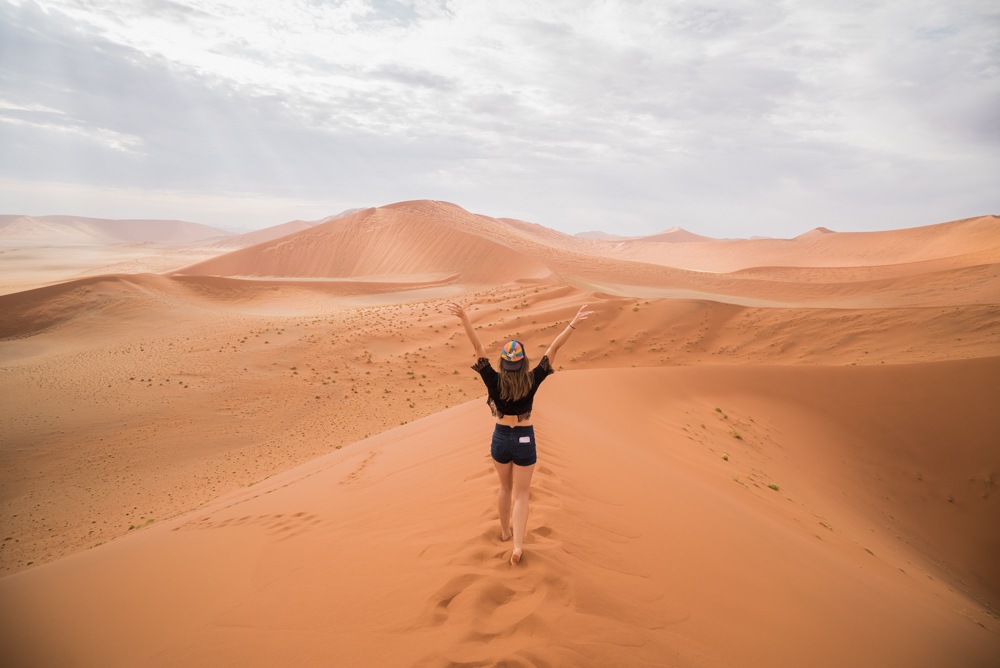Hey friends, this has been a long time coming.
I started writing this article several times, beginning four years ago. And each time I’ve asked myself:
“Who am I to talk about this?
It’s too controversial. It’s weird coming from someone who is very much part of the global privileged. How is this going to come off. Am I just inviting scrutiny?”
And yet here we are.
Because as I’ve traveled to over 60 countries, in many cases staying a while and moving slowly, I’ve come to notice things that put my past self to shame, that make me realize I didn’t see my privilege for most of my life (and in many ways still don’t), that make me question if widespread colonization has ended at all. Most of all, I wonder if tourism is really good for people or not.
With 1.5 billion recorded global arrivals in 2019, causing tourism to outpace the global economy, now more than ever, we have to talk about the impacts it has on our world. Because as we so painfully learned in 2020, what happens in one corner of the world will, eventually, affect everyone.
This post is the product of years of research — of all the times I started and stopped writing this, trying to tackle the question,
Does tourism help or harm?
The Good of Tourism
Throughout my research, I’ve found countless examples of the good tourism has done. When manta ray and diving tourism outearns practices like dynamite fishing in Komodo, this preserves essential reef systems. When climate change hits arid places like Ethiopia, tourism provides a way of earning and living that doesn’t degrade the environment further, at least not directly. Tourism creates an economy that doesn’t depend on exploiting natural resources and manufacturing — when done right.
Job creation and poverty alleviation
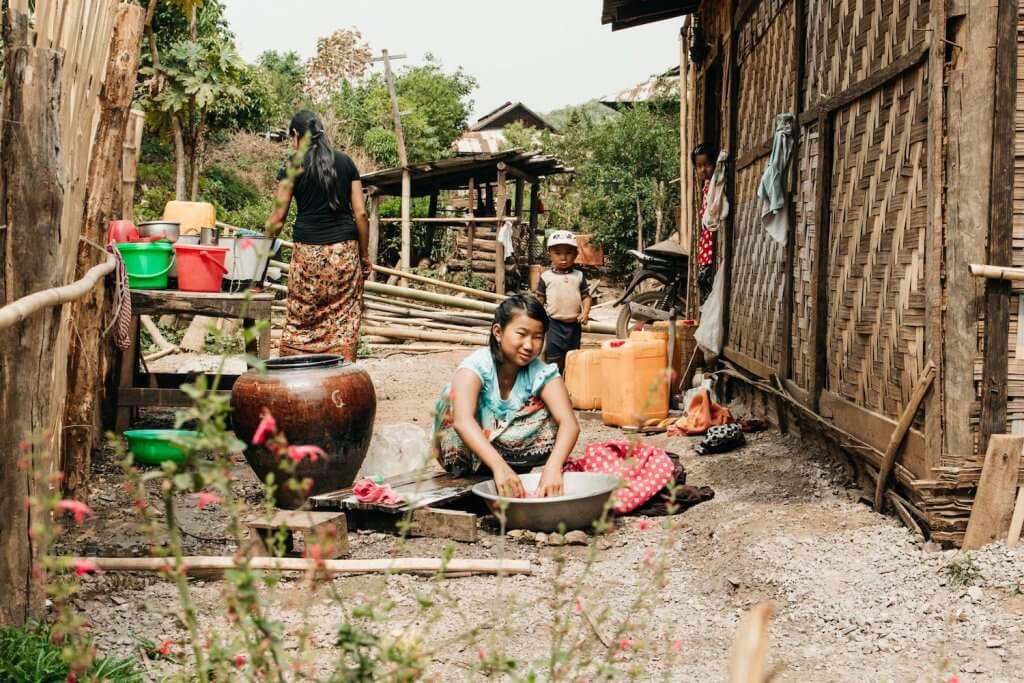
In many places, tourism has trumped international aid in terms of wealth transfer from the rich directly to the poor. And let’s be honest, it’s a lot more empowering than aid and handouts.
Tourism, at least in 2012, was “either the number one or number two export earnings for 20 of the 48 least developed countries, including Tanzania and Samoa.”
According to UNESCO, sustainable tourism, which it defines as respecting “both local people and the traveler, cultural heritage and the environment” provides these benefits:
- Tourism can be directly taxed, creating the necessary funds for improving infrastructure, education, and health on the ground.
- Locally owned microenterprises run by the poor serve as a benefit, as tourists buy a wide variety of goods and services.
- Sustainable tourism leads to employment diversification on a local level, which reduces the vulnerability of the poor.
- The tourism industry employs a high proportion of individuals under 25. As a result, youth gain access to higher earnings and better opportunities through sustainable tourism.
- And tourism provides jobs to people with little to no formal training (via The Borgen Project).
Wildlife preservation
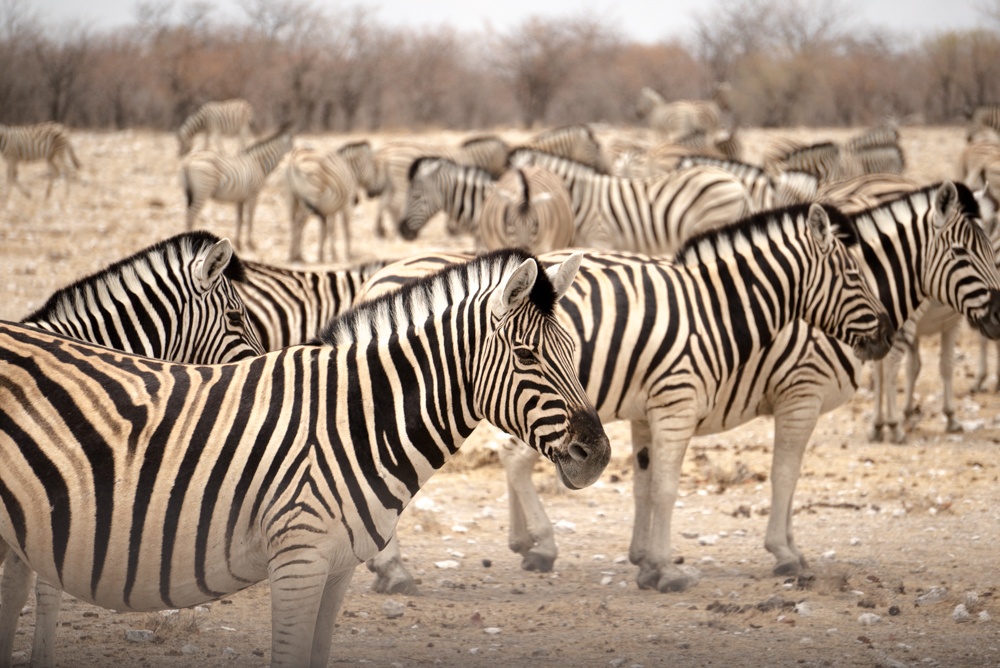
In 2013 I sat in a small room on the island of Flores, Indonesia, while a proud dive master from my liveaboard shared that Komodo Island had been named a manta sanctuary. This followed the establishment of the first shark and ray sanctuary in the Coral Triangle the year prior by the government of Raja Ampat, another popular diving area in Indonesia.
Each year, the illegal wildlife trade is worth at least $23 billion. Many of these illegally harvested animal parts, both from mantas and African wildlife, are used in “medicinal” products abroad.
The group Manta Watch and local dive operators were able to prove that a live manta ray is worth 2,000 times more than its value as a dead “medicinal product.”
Wildlife tourism outpaces these earnings in many places around the world, providing good jobs for locals who would otherwise have fewer earning opportunities.
According to the World Travel and Tourism Council, “while the travel tourism sector accounts for 10.4% of global GDP, wildlife tourism represents 3.9% of this figure, or $343.6 billion, a figure equivalent to the entire GDP of South Africa or Hong Kong. Of equal significance is the fact that around the world, 21.8 million jobs, or 6.8% of total jobs sustained by global travel and tourism in 2018, can be attributed to wildlife.”
For example, in Tanzania — home to the great wildebeest migration, Mount Kilimanjaro, the beaches of Zanzibar, and the ecologically rich and diverse Ngorongoro Crater — tourism accounts for over 11% of its GDP and employs roughly 2.3 million people. Protected areas equate to one-third of the country’s total area. Roughly 46% of international tourists to Tanzania experience a wildlife activity, and 26% enjoy a beach holiday.
We could fill the pages of book after book with examples like this, where tourism has helped preserve land, animals, and areas of historical significance for the enjoyment of present and future generations.
The rise of ecotourism

Wildlife-related tourism isn’t the only means of protecting the environment while providing jobs. The ecotourism sector is growing, and rapidly — at an estimated 5% year over year — driven mostly by millennial travelers.
But ecotourism is not just about washing fewer towels. It’s about providing experiences that complement the local community and ecology; providing opportunities that do not take money out of the community; keeping green practices in mind regarding energy, food sourcing, and tourism experiences; and empowering the local community to co-create tourism in ways that benefit them, not foreign interests.
According to Mandala Research, a women-run consultancy focused on corporate social responsibility, sustainability-minded tourists are more likely to stay in a destination longer, spend more money, and buy locally.
This type of travel experience isn’t always easy to find, but with a little extra research, they’re available all over the world (this is what we offer with our whale swim trip in French Polynesia).
Ecotourism is a way of providing travel experiences that have a minimal impact on the environment while empowering local people who may otherwise have to exploit natural resources to survive.
The question we always have to ask ourselves is, if not tourism, what else would these economies run on? The largest economic activities in the world are industrial manufacturing (32%) and chemical production (12%). By comparison, tourism is a much better alternative.
The advancement of women
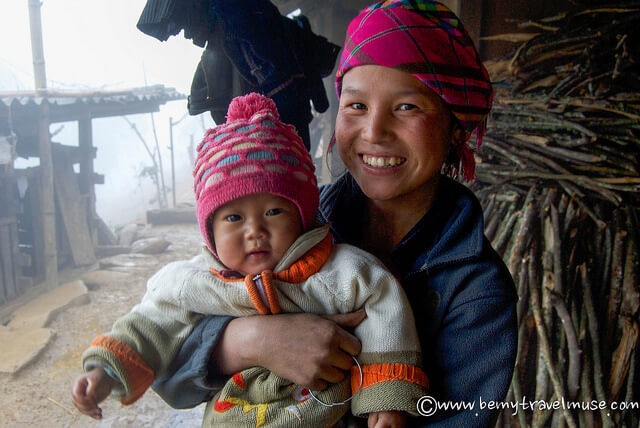
Tourism provides one of the most essential opportunities for female empowerment, particularly in the developing world.
According to the United Nations World Tourism Organization, women make up the majority of the world’s tourism workforce.
That said, they’re often in the “lowest-paid and lowest-status jobs in tourism, and perform a large amount of unpaid work in family tourism businesses.”
But when women have choices, the birth rate goes down, putting less pressure on already diminishing natural resources. When women have more financial inclusion, more education, and more opportunities, society benefits.
According to the 2013-14 Education for All Global Monitoring Report, in Pakistan, working women with high levels of literacy skills earned 95% more than women with weak or no literacy skills, whereas the differential was only 33% among men. Educated women are empowered to take a greater economic role in their families and communities, and they tend to reinvest 90% of what they earn into their communities.
Tourism can empower women to step into leadership roles they deserve, like Maggie Duncan Simbeye, the first Tanzanian woman to own and operate her own tour company. Or like Natajia Miller, who runs the hotel and tour company I worked with in the Bahamas that her mother founded.
When we combine education, job opportunities in tourism, and making women the priority, we have a greater chance of positively impacting the communities we travel in, when done right.
But it’s not always done right, and we often have the good mixed in with the bad.
The Ugly of Tourism
For every example of the good the tourism does, we can often find a more crushing, visceral example of where it has done irreparable harm. We can’t only focus on the good, we have to confront the bad parts of tourism as well, the ugly parts that disenfranchise locals, degrade the environment, and perpetuate colonial norms, beginning with the crushing reality that most of the time, the money leaves.
Economic leakage
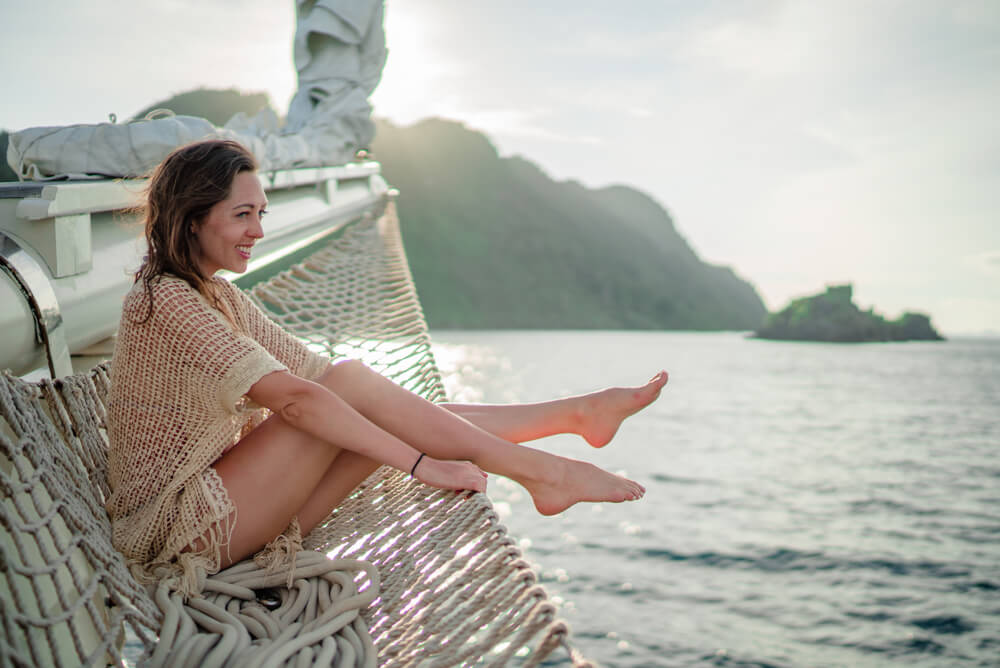
Continuing with my Indonesia examples, a few years ago I joined a liveaboard diving ship in Raja Ampat, West Papua, Indonesia. This is regularly regarded as one of the best places to dive in the world, and I still remember it as one of my most amazing trips to date.
But the boat was foreign-owned, and the staff on the boat were not from Raja Ampat, but rather from other parts of Indonesia. I even heard the Javanese driver refer to the locals as “curly heads”, and found out later that there’s a genocide happening in West Papua. How did I visit and not even know? How is this not international news?
Little by little I realized that while we did buy fish from the local fishermen, and I bought a coconut from a local woman, most of the money spent by the foreigners on the ship did not remain in the area, or even in Indonesia. It hurts me to realize this, but it did not benefit the locals much, if at all.
My experience was not unique. A 2013 report from the UNWTO noted that just $5 of every $100 spent in a developing country stayed in that destination – this is known as economic leakage.
We live in a world that is becoming more and more globalized. It’s easy to become a Marriott member and always stay in Marriott-owned hotels, or to favor the Hilton because it’s familiar, or to stay in an Airbnb that is rented out by a foreigner, effectively driving up rent prices for locals.
The problem? Most of the money leaves the country, doing very little to empower locals while taxing their ecology, using their limited water resources, generating trash in places that are often ill-equipped to handle it, and more.
All-inclusive horrors
All inclusive vacations sound pretty good. You get all of your food, drinks, entertainment, and accommodation included for one price. Your hand is held from landing to takeoff and you don’t have to think about anything. These are common all over the Caribbean, and I was even hired to promote a Spanish-owned one in Mexico’s Riviera Maya and (accidentally) stayed in one in Cabo San Lucas this past October.
What I found strange about both is that Mexican food was never on the menu. It made me wonder how much had to be shipped in when so much could have been sourced locally. The property in Cabo also offered a “Mexican night” with stalls selling Mexican souvenirs instead of encouraging guests to visit a local market to get the real experience for much cheaper and with more direct wealth transfer to locals.
But this is typical. Most all-inclusive guests never leave the resort or spend money locally.
In a 2014 survey of 500,000 tourists by Tourism Concern, fewer than 20% of respondents who had been on an all inclusive regularly left the resort to visit other bars, restaurants or excursions.
But what about jobs for locals? The study additionally found that wages were often lower and working conditions worse at all inclusives where they conducted studies in Tenerife, Kenya, and Barbados.
The other issue is the rampant waste and bigger-is-better mentality at large, all-inclusive resorts. These are often major users of the power grid, major plastic waste contributors, and since everything is ‘free’, people often waste food at all-inclusive resorts more than they would at a restaurant or at home.
And where does this food come from? If you stay at a resort in Jamaica or the Bahamas, you’re eating food from Florida. It’s worth looking at what’s in the gift shop, too, because it’s typically brands from home that tourists trust and prefer, rather than local options.
The power of all inclusive hotels makes it difficult to mitigate these issues. In the Gambia, all inclusive hotels wield so much power that when the government tried to ban them, tour operators threatened to take their business elsewhere, enforcing the cycle of leakage.
Locals get priced out of their homes
Look at any beach destination and you’re likely to see that most of the best real estate is taken up by vacation homes and beachfront hotels.
Without laws that keep generational property within the family, property taxes make it difficult for locals to hold onto beachfront real estate, because it is based on the value of the land, which goes up with the increase in tourism and foreign investment.
This can be seen all over the world, where locals can no longer afford to live where they grew up.
From Barcelona to New York, New Zealand to Italy, the “Airbnb Effect” doesn’t just impact the developing world, but the places many tourists call home as well.
This is a bitter pill to swallow, because many of us turned to Airbnb for a more local experience than a hotel can offer, hoping that we were supporting locals this way. And maybe in the beginning we were.
Many locals in the places we love to travel do not want any tourism because for many, it has just made life harder and degraded the environment.
Environmental degradation
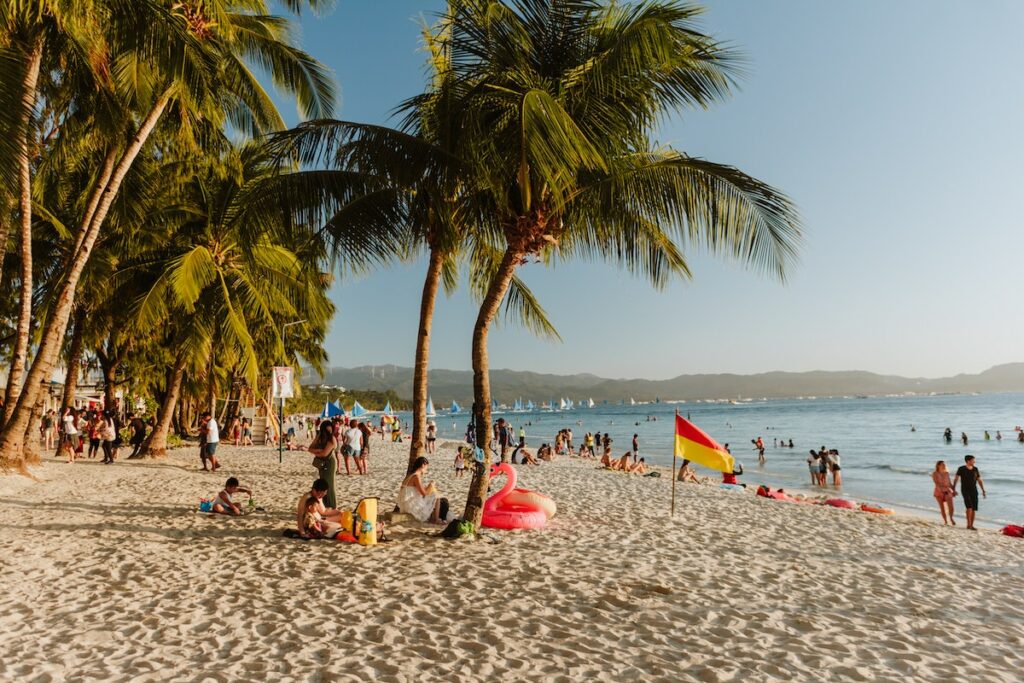
In 2019, Boracay in the Philippines had just reopened to tourism after 6 months of closure to clean up and allow natural areas to recover, but with new regulations.
The year prior, 1.7 million people had visited Boracay, one of 7000 islands in the Philippines. Tourism grew so quickly and without regulation in the years leading up to the closure, that sewage was pumped directly back out to the sea, overfishing decimated 90% of the coral reefs, and the mangroves that once provided a buffer for tropical storms were drained and built upon. Like many similar stories, locals were undercut by outsiders and watched helplessly as their island became a nightmare.
As many places like Boracay become famous and more accessible, and as tourism numbers swell worldwide, natural areas are receiving the kind of visitor influx that pushes them to the brink.
In the US National Park system, the most visited national park, the Great Smoky Mountains, received 12.1 million visitors in 2020 and overall national park visits topped 327 million in 2019, up from 281 million in 1986 and 6 million in 1960, a mere two generations prior. This increased tourism leads to land degradation, air and noise pollution, littering, trampling and the alteration of fragile ecosystems.
In Thailand, 77% of the total of 238.4 square kilometers of coral reefs in all of Thailand’s waters have been devastated, according to Thon Thamrongnawasawat, deputy dean of the Faculty of Fisheries at Kasetsart University in Bangkok, who blames beachfront hotels, anchoring, and plastic rubbish dumping as the main causes.
Like the positive instances of land and habitat preservation noted earlier, we could fill the pages of books with examples like these as well.
Tourism contributes to climate change
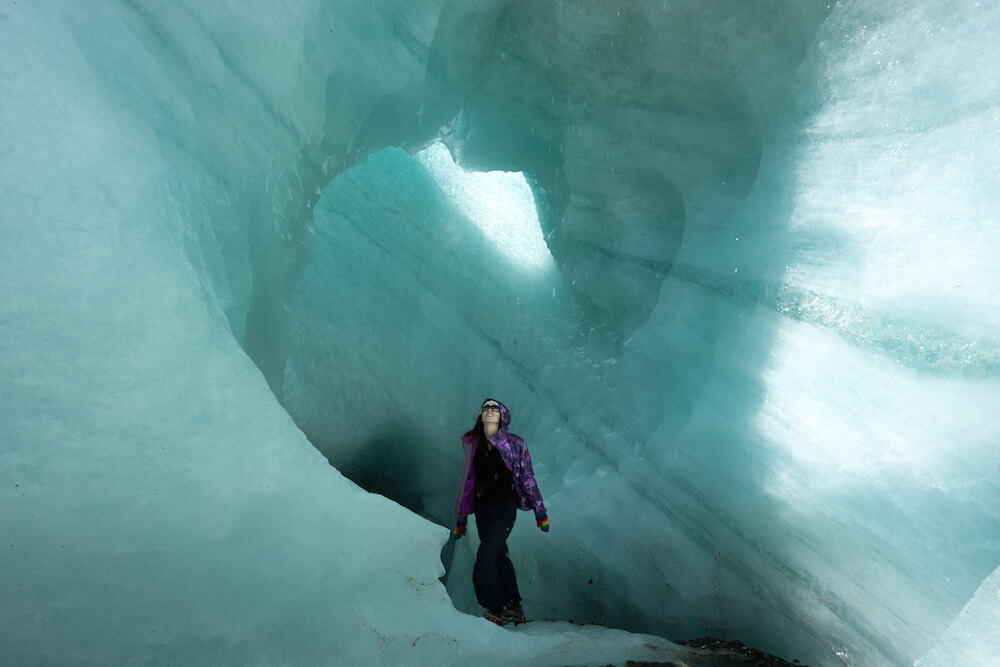
While tourism provides earning opportunities in areas where climate change has made the usual ways of life more difficult, it also contributes to climate change.
Emissions from tourism-related activities are estimated to contribute 7% to global emissions. According to UNWTO/ITF’s latest research, CO2 emissions from tourism are forecast to increase at least by 25% by 2030. However, to reduce emissions in accordance with the Paris Accord, global emissions need to decrease by at least 7% per year throughout the next decade, which, globally, we are not on track for.
Realistically, travel makes up a small amount of global emissions, and even if everyone were to stop traveling, it would not be enough. It would also harm some of the world’s most vulnerable people and places who have come to rely on tourism, as we’ve seen in 2020.
Travel also helps people to see the degradation of the planet. Personally, I didn’t truly understand the urgency until traveling the world, and being told by every single person I talked to that they once had abundance that now is dwindling, from the sushi fish of Japan, to the animals of Southeast Asia, to the reliable seasons of Patagonia. Everywhere I go, the story is always the same: things are changing — and it is not for the better.
In many ways, traveling helps educate people about the world and its cultures and helps us to care more about what happens to it, because we have seen beyond our own borders. But is it enough? Is it too little too late?
Perpetuating colonial norms
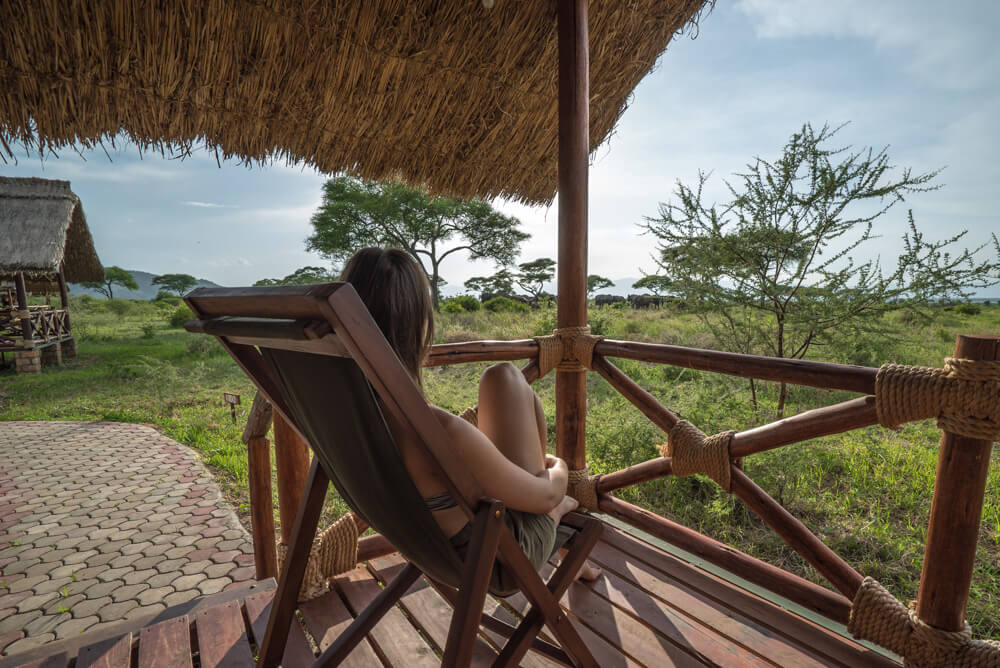
Traveling along what they call the ‘banana pancake’ trail in Southeast Asia in my 20s was a defining part of my life. I met people from all over the world, but now that I think about it, I met them from all over the “white” world. I met them from privileged countries like my own where young people can save up and travel long-term because these countries are so much cheaper than our own.
I did stay in a lot of locally owned hostels and I did mostly eat food that I bought directly from street vendors, but when it comes down to it, I rarely met local travelers or got to engage with and hang out with Thai or Cambodian people. It happened from time to time and I relished the opportunity, but for the most part, it was in a service-oriented situation where we both played a role – the server and the customer.
But I’ll be honest with you, I hardly even noticed this. I didn’t think about the places where local people lived. I didn’t seek them out or wonder if they were much different than the accommodation that I was in, which was the most basic I have ever stayed in my life. And yet most of theirs is even more basic, often without running water.
I didn’t think about if my presence was good or bad.
But it started to click when I traveled to southern Africa for the first time in 2015. It clicked when safari camps could run thousands of dollars per night while black locals slept in corrugated metal shacks. How could there be so much wealth and so much lack of it present at the same time? It started to click when the black clerk helping us push a cart out of the grocery store in Namibia got the full pat down while the guard barely glanced at me. It clicked when one of the “activities” offered by a backpackers in Zambia was an afternoon “volunteering” with local kids. What were they really doing? Pimping kids out for tourist photos?
Tourism and Neo-Colonialism
This is the point in the article where I have frequently stopped writing. Where I have questioned who I am to talk about this, and have been certain I would say or do something wrong, or that something I did in the past would suddenly not age well.
But the truth is we all have to look at the way that privilege and tourism go hand-in-hand, and the ways that we may have perpetuated it, been complicit in it, and benefitted from it.
Colonialism is not over
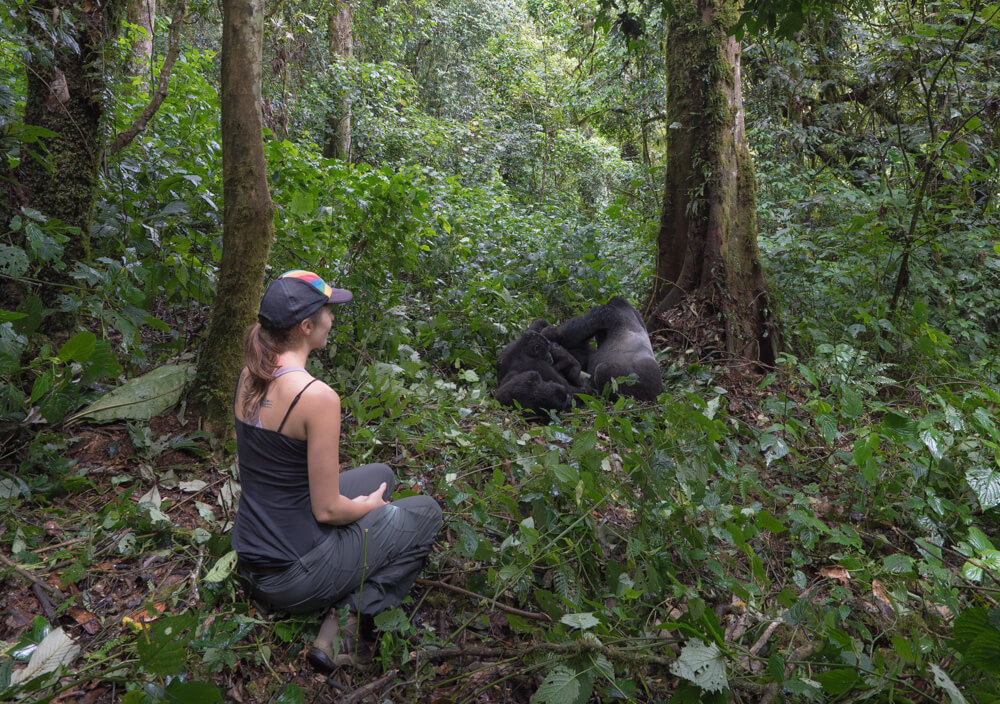
For me the wake up point was in a taxi in Uganda. It’s a long drive from the airport to Kampala, so the driver and I had a while to chat. He wanted me to give him pointers on how to marry a muzungu (white) woman. I asked him why that’s what he wanted, and he shared it would be his way to come up in the world.
Why wouldn’t this be his misconception? Most of the white people he’s seen his whole life have money. Even backpackers traveling on a shoe-string budget are comparatively privileged just for the ability to afford a plane ticket and time that is not spent in a relentless pursuit of earning a livable wage. And, realistically, most of the hotels and big businesses are still owned and run by former colonizers, whose profits exit the country. Working in these establishments requires learning English and adapting to western norms. I can see how it would be easy to feel like the only way to ascend is to be a part of the western world.
Meanwhile stories about ‘Africa’ are too often about the white messiah who comes in to ‘help’, perpetuating the myth that ‘Africa’ needs saving and little white girls and boys can come in and fix it during a volunteer trip. Colonization is not over, it’s just economic now.
The words of Reni Eddo-Lodge in Why I’m No Longer Talking to White People About Race, stand out: “Neutral is white. The default is white. Because we are born into an already written script that tells us what to expect from strangers due to their skin color, accents and social status, the whole of humanity is coded as white. Blackness, however, is considered the “other” and therefore to be suspected.” I see this play out in the way that I am treated as a white foreigner, in comparison to a local POC.
Much of the perpetual stereotypes of ‘Africa’ are that it is poor and dangerous, despite the fact that many countries on the continent are rich in both minerals and biodiversity. Indeed, the kicker is that the current powerful status of the west could not have been built without Africa’s riches.
Whether or not we participated in historical systems of colonialization, exploitation and apartheid, western tourists, interpreted as having money and power, benefit from the power structures that were built over centuries.
The sexualization and exploitation of local women
If you travel much in Southeast Asia, particularly Chiang Mai in Thailand, you will start to notice a breed of tourist called the ‘sexpat’. Is it disgusting? Are they just lonely old men who fill a role? I don’t really know or care, I’m just disturbed that this is even a thing, aren’t you?
In the same way, imagery of grass skirts and coconut shells on smiling Hawaiian women beckoned visitors to the islands. ‘I’m here for your enjoyment, I’m here for the taking’ was the implication.
Bani Amor writes “POC bodies, cultures, and lands are the exotic dominion of the settler […] From the Black Mammy trope to that of the Singapore Girl, Spicy Latina, Pocahontas, and China Doll, women of color are deemed to exist to serve the whims of the white settler, whether that be sexual or domestic.”
She goes on to paraphrase Mary Fillmore, who wrote, ‘A tourist destination is where men of one class can enjoy the privileges of men of another class, and women can enjoy the privileges of men. Someone else will cook their meals, make their beds, clean their toilets,’
‘The tourist’s desire is usually to be indulged like a child…being free to indulge one’s appetite at will, to play all day’, adding, “and have someone else (spoiler alert: WOC) clean up the mess. These host communities end up playing the role of the Mother to the infantilized tourist. There’s nothing feminist about taking selfies with Maasai women struggling to hold onto their dignity in the face of exploitative tourist practices—that’s some colonial Mammy shit.”
Travel has often been a means of the west exploiting the rest, and we don’t have to look very far to see that little has changed over the last couple hundred years in that regard.
What Can Be Done?
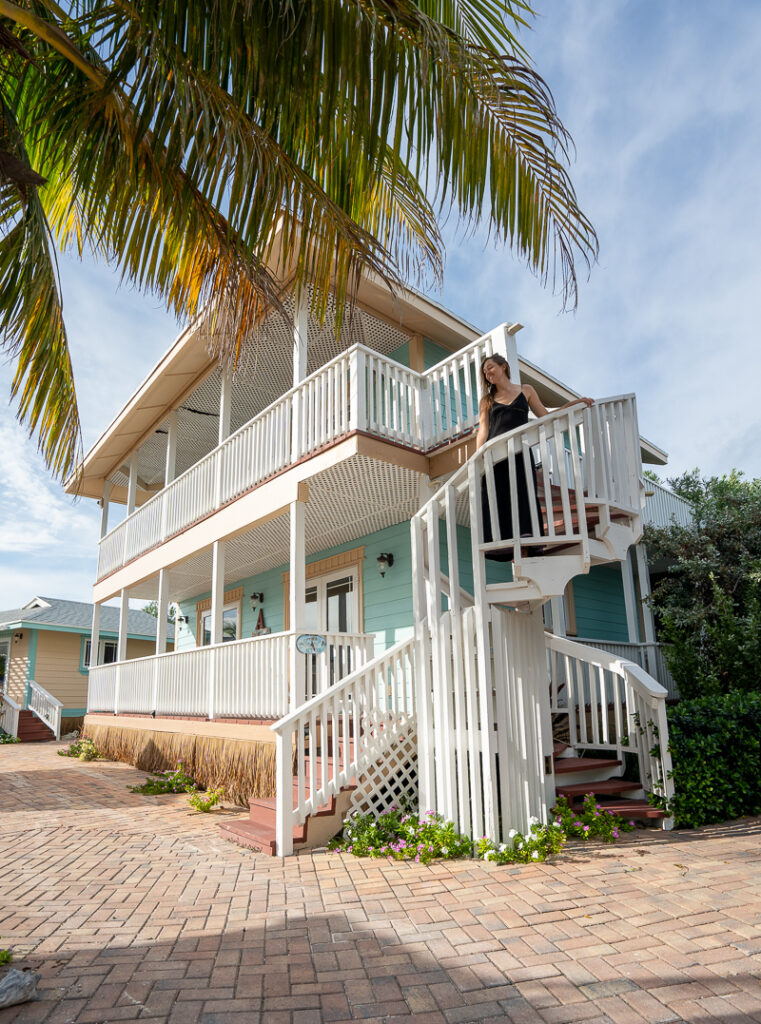
I’m not on any kind of soapbox sharing this. I make mistakes all the time.
But awareness is half the battle.
When we travel, we vote with our dollars. There are many incredible people out there who are working to empower their own communities, and supporting them is, I think, our duty as travelers.
Traveling independently or choosing tour operators who care about empowering locals and minimizing our environmental impact are important steps. It’s not to say that foreign owned companies can’t have a good impact, and the more pressure we put on them to be socially responsible, the more that they will have to comply.
But when I travel now, I actively look for options that are locally-owned, that are eco-conscious, and that are run by women. Even if I do stay in a fancy, foreign-owned resort, which I honestly love to do from time to time, I seek to balance it out with local options, too.
It’s up to us how we really want the future of travel to be. Travel has the power to unite the world, to pull people out of poverty, and empower women to be entrepreneurs. Traveling also has the power to enforce colonial norms, “other”ize people, and take advantage of them and their homes.
We all have to be aware. We have to think about who benefits from the money we spend, and more importantly, who does not. Traveling responsibly can take an incredible amount of research, but it’s essential.
Because the thing about a globalized world that allows so many of us to travel, is that we are all interconnected. We share the same oceans, the same air, and the same planet. We all want to feel that we have a home, we all want to love, to feel safe, to be respected, to have access to clean water and food, to have enough for us and our families. The truth is that when one part of the chain is broken, the circle cannot be complete.
And as someone who encourages others to travel and whose life and livelihood have depended on travel for the better part of the last decade, I couldn’t pretend that these uncomfortable truths don’t exist anymore. Thanks for reading this far. I’d love to know your thoughts, too.
Pin me for later:
There has never been a better time to plan your next trip and make your Dream vacation a reality . Whether you've been dreaming of relaxing on a sun-kissed beach, exploring ancient cities, or embarking on an epic adventure, now is the perfect moment to make it happen.



